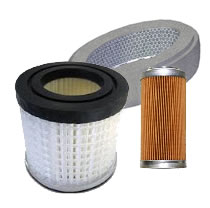
You can’t ignore the minimum efficiency reporting value (MERV) when shopping for an air filter. Air filters aren’t limited to air conditioning systems and furnaces. You can also find them in automobiles, machines and even airplanes. Regardless of the type, however, many air filters have a MERV rating. For a better understanding of MERV ratings and how they affect the performance of air filters, keep reading.
What Are MERV Ratings?
MERV ratings are numerical ratings that reflect an air filter’s ability to remove small particles. All air filters are designed to remove particle matter from the air, such as dust, pollen and mold spores. They typically feature a mesh construction that catches particulate matter while still allowing air to flow through them.
The MERV rating represents how well an air filter removes particulate matter from the air. More specifically, it represents a filter’s ability to remove particulate matter in the range of 0.3 to 10 micrometers in size. To put that into perspective, a micrometer is roughly one millionth of a meter.
MERV Rating Values
Developed by the American Society of Heating, Refrigerating and Air Conditioning Engineers (ASHRAE), MERV ratings can range from 1 to 20. The higher the MERV rating, the better the air filter’s particulate-trapping abilities.
- MERV 1-4: These air filters have the lowest MERV ratings. They are commonly used in residential heating, ventilation and cooling (HVAC) systems where they don’t interfere with airflow.
- MERV 5-8: With a higher MERV rating, these air filters are able to capture more particles. This makes them a popular choice for air-purifying systems as well as larger and more expensive HVAC systems.
- MERV 9-12: These air filters provide a higher level of filtration. They can capture finer dust, smoke and even some bacteria.
- MERV 13-16: Air filters in this range are typically used in hospitals and commercial buildings where high air quality is essential.
- MERV 17-20: These are the highest-rated air filters. They are commonly used in clean rooms and surgical facilities.
How MERV Ratings Affect Air Filter Performance
Air filters with a high MERV rating are able to remove more small particles — specifically particles ranging from 0.3 to 10 micrometers in size — from the air. When it comes to MERV ratings, though, higher isn’t necessarily better.
A high MERV rating will restrict airflow. Air filters work by allowing air to pass through them. The higher the MERV rating, the less air will pass through the air filter.



